Features
The Mahaweli Project and the Food Production Drive
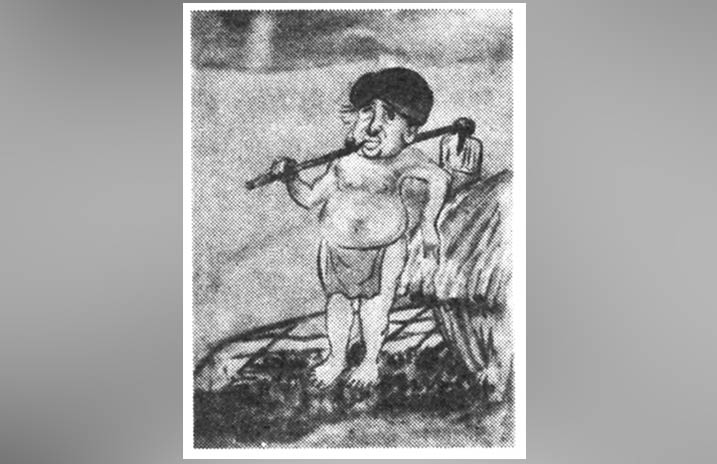
(Excerpted from Rendering Unto Caesar
by Bradman Weerakoon)
The Mahaweli Diversion Project was a dream on which Dudley (Senanayake) had spent many hours of labour. His planners had broken it down into five or six major projects with dams and electricity generating stations below them at selected points on the Mahaweli ganga as it came down from the hills in a north-easterly direction to enter the sea near Trincomalee. It had enormous potential. Hundreds of thousands of hectares of land would be opened up for new cultivation, while many reservoirs on the way, would have their water supplemented.
The hydropower generation capacity was similarly very large. The plan was to raise capacity about two-fold when Mahaweli was completed. Some were talking about exporting the excess power to India. Since there did not appear to be any easy method of mobilizing the enormous resources required, the project was designed to take 30 years for final completion. It would have fulfilled the Senanayake (both D S and Dudley shared it) vision of a country where the symbols of the dagoba (Buddhism) and the wewa (irrigation) complemented each other in ensuring growth and a life of freedom and prosperity to the farming community.
King Parakramabahu’s famous saying, “Let not a drop of water that falls on my land flow into the sea without being of benefit to man,” which Dudley often spoke about and referred to at public meetings, he thought, would be achieved to a great extent through the Mahaweli ganga project.
I recall a grand ballet involving hundreds of dancers being composed on the theme of the Mahaweli project and taken as part of the information department’s publicity to many parts of the country. The opposition cleverly ridiculed the project as a grandiose scheme which would never see the light of day and called it the Mahaweli ‘diversion’ punning on the idea of diverting the people’s attention from the real problems facing the country, of the cost of living and the Tamil ethnic issue. But Dudley went ahead undeterred by the criticism.
Dudley’s food production drive was a model of how a government programme should be conceived, structured and managed. The objective was clear. The country had to become self-sufficient, or close to it, in the production of food, particularly paddy or rice, the staple food of the people.
He had already dealt with the dangerous issue of the rice subsidy which had caused his resignation from office in 1953. Giving two measures at fifty cents a measure to every person in the country was a terrific burden on the exchequer. So he hit upon an ingenious idea – cut the ration to one measure but give it free. The rest could be bought in the open market at whatever price the consumer could bear.
While the public reaction to this amazing proposition was ambivalent, the opposition railed at it implying that Dudley was up to his usual game of hitting the people in the stomach. Sirimavo, inspired perhaps by the news that Neil Armstrong had landed on the moon, and the moon was very much on people’s minds, promised that when she came back she would restore the stolen second measure even if she had to get rice from the moon.
Dudley used the resultant steep increase in the price of rice as an incentive to paddy farmers to increase their production and launched an intensive ‘grow more food’ campaign. At the time, Ceylon was perhaps seventy per cent towards self-sufficiency in its basic food requirements, particularly rice. The rest was being imported. The country faced a severe foreign exchange crisis and imports were difficult to meet the balance. Many, specially the low-income consumers would have had to do without some items of popular taste or move to substitutes like manioc and yams. Flour might have been made available under the US PL480 and other aid schemes. But Dudley realized that wheat could never be produced in the country, and making the consumer dependent on wheat flour, was not advisable in the long run. There was no other choice but to grow the food, especially rice, ourselves.
Dudley who was a good organizer built the infrastructure base realizing that he had to get energetic and experienced people to lead the food production drive. So, he selected several senior administrators with a good track record in management of projects as government agents, and posted them, not without some protest in view of their seniority, to particularly the major rice producing districts. With these individuals in place, sufficiently backed up by technical personnel, like senior irrigation engineers and agriculture department staff, he used the new technology of the Green Revolution which had gained credibility during this time, to provide the farmers with the seed material, pesticides, fertilizers and marketing chains to go for higher productivity from their holdings.
Most importantly, Dudley gave this his very personal imprint by making it a priority item in the Cabinet agendas and commissioning his secretary in defence and external affairs, G V P Samarasinghe to head a special cabinet sub-committee on Food Production. I was part of the cabinet sub-committee team, and G V P went to work with his customary professionalism. Records of minutes, which I have, indicate that there were 56 such cabinet sub-committee meetings during these five years and the range of issues taken up were staggering.
Dudley himself spent a great deal of time on weekends in the field, exhorting both the bureaucracy and the farmers, to produce more and yet more. Everybody cooperated and some amazing yields were obtained in fields which had up till then been known for only average harvests. One or two of the senior men he had handpicked as government agents were not equal to the task. Once in Batticaloa, on a day full of an impossible schedule of inspections of chilli and minor crop cultivation on the western side of the lagoon, where the culverts were broken and detours on dusty, uneven dirt tracks frequent, Dudley lost his customary cool.
It was seven in the evening, the convoy of vehicles had long since broken up, the Youth Settlement Scheme farmers, who had been standing by for four hours, had dispersed and when we arrived there was not a soul in sight. Dudley, bathed in dust and perspiration and very angry, got out of his jeep and bawled, “Where’s that bloody GA? It was curtains for Kasilingam. Within a week the gentle and often absentminded, western classics scholar was back in the treasury in Colombo.
But there were many successes and spurts in production as a result of the program. Crop yields in paddy increased markedly and this was statistically reflected in the Central Bank Reports for these years as follows:
A novel greetings card
Dudley captured all of this change with a wonderful New Year greetings card which he devised himself, in which he appears as a typical paddy farmer in an amude with a mammoty on his shoulder (as seen in the picture). I do not think that any other leader in the world would have wanted to show himself publicly in this manner.
At the end of each year the prime minister’s office would put up for the PM’s approval several specimens of cards to be sent to his friends and acquaintances here and all over the world conveying the customary greetings and good wishes for the season and the New Year. In 1967, with his food production drive in top gear, Dudley designed his own card illustrating in a very personal way his own involvement in his pet project.
To balance the traditional motif inside, with the world’s evolving technology, the cover of the card showed a photograph of the resplendent island of Lanka taken from the satellite Gemini X1 at a height of 500 miles above the earth.
Features
A conversation that cannot be delayed

Academic Freedom:
by Anushka Kahandagamage
The recent cancellation of the lecture ‘How to Fight Against the IMF Austerity Programme,’ organised by the International Youth and Students for Social Equality (IYSSE-Sri Lanka) at the University of Peradeniya, sparked a buzz about academic freedom in the country—though not to a significant extent.
In Sri Lanka, academic freedom is a topic that is rarely discussed and often understood in a limited sense, which diminishes its significance. However, I believe academic freedom is closely linked to the overall spirit and practice of democracy in society and should be integrated into the education system not only at the tertiary level, but also at earlier stages of education.
The discourse
The discourse on academic freedom, as I understand it, is closely tied to the entire education system. Violations of academic freedom can occur due to factors such as the privatisation of education, militarisation of education, cuts to the budget for the humanities and social sciences, politicisation of the university system, and issues related to gender and diversity, among others. Together, these factors can create an ecosystem in which academic freedom is at serious risk.
State Interference and Politicisation
One of the most pervasive forms of violating academic freedom is state interference in academic matters and the politicization of universities. The state can intervene in the university system at various levels, such as threatening academics who speak out against the government or other nation states with close ties to it, especially when those states are involved in human rights abuses and war. At the same time, discouraging and banning research which are seen as a threat to the existing power structures or creating an eco-system in which scholars are scared to conduct research and write on specific themes.
Another form of politicisation of universities that also impacts academic freedom is the direct and indirect interference of state and professors in authority in the recruitment process. The decline in the standards of faculty recruitments is a pressing concern within the academic landscape. University academic departments, if which many come under humanities and social sciences, increasingly adopt the practice of recruiting individuals with bachelor’s degrees for positions as lecturers and assistant lecturers. Sri Lanka stands out as possibly one of the very few countries in South Asia where individuals, armed only with a bachelor’s degree, can commence teaching sociology or any other discipline in universities and oversee dissertation research at the undergraduate level. This shift in recruitment practices has consequences for the academic rigour within university departments. These recruitments are often based on favouritism from academics in positions of power or political interference. They are frequently made to bring in passive academics who are submissive to the system and have little understanding of what academic freedom truly means.
Privatisation of Education
While the privatis x+ation of education has been a topic of discussion in many left-wing academic circles for a long time, a solution does not seem imminent or likely in the near future. Privatisation will affect the autonomy of the education at all levels, setting the agendas relevant to market forces and obstructing critical and innovative thinking, which foster human values and challenge the foundation of market-driven society and forms of authoritarianism. Further, privatisation of education undermines academic freedom, as its focus is to maintain the exploitative capitalist system and justify it.
Budget Cuts in Humanities and Social Sciences
All over the world, Humanities and Social Sciences departments of Universities are facing budget cuts. Whenever there is a deficit of funds, universities tend to eliminate some departments and reduce the size of those within the Humanities and Social Sciences by laying off faculty and cutting budgets. For example, in 2022, I experienced the consequences of budget cuts to the humanities firsthand, when the University of Otago, which I was attending at the time, was struggling with funding. It affected many departments within the Humanities and Social Sciences. These are forms of violating academic freedom—the freedom to study and research subjects that students and faculty are passionate about, and for academics to have stable careers. However, by eliminating some departments from the university system or reducing the capacity of departments within the Humanities and Social Sciences, the very concept of academic freedom becomes invisible within the system.
Militarisation of Education
Militarisation of education and academic freedom lies in contrast to each other. Militarising education will have serious consequences. On one hand, it will diminish the value of other knowledge systems. On the other hand, military institutions will foster compliance rather than critical thinking, producing citizens who unquestioningly obey authority and power. This shift would lead to a society where injustice goes unchallenged and human rights violations become commonplace. This is particularly concerning because education in this situation will play a crucial role in shaping ideologies that reinforce military structures.
The public’s understanding of what is ‘common sense’ would be conditioned by military values. Against a background where military institutions are handling or influencing higher education, the idea of academic freedom will diminish. For an example, in any country, the military will generally align itself with the state. In this kind of situation, research which may be critical of the authoritarian state will not take place within the premises of territory education institutes, which are run by the military. The same applies more generally to all other territory education entities in countries under heavy military influence.
New Normal
The lack of updated knowledge within academic institutions often leads to an environment where critical thinking is marginalised, and discussions on academic freedom are suppressed, erased or the university community is unaware of its existence. When faculty and students are not encouraged or equipped with the latest knowledge, they are less able to critically engage with contemporary issues or challenge the status quo. This stifles the kind of intellectual inquiry that is central to academic freedom.
In Sri Lanka, there is a growing trend of uncritical thinking becoming the norm, both among academics and students. Many academics, particularly those in positions of authority, are reluctant to voice opinions that challenge the prevailing political, social, or economic systems, or rather they intend and make an effort to sustain the very system which supress the critical thinking. This is partly due to fear of political or institutional repercussions, and partly because many have become accustomed to a system where conformity has become the easy way and is also profitable socially and financially.
Students, who are following in the footsteps of their passive and unvocal professors, lack, even the mere ability to see the injustice of the system and to understand the importance of academic freedom. Instead of becoming creative and responsive critical thinkers, these students would more likely choose the easy way: get the degree certificate and leave the university. This lack of intellectual challenge diminishes the role of universities as spaces for critical thought and social progress, effectively erasing important conversations about academic freedom, democracy, and justice.
Against this backdrop of silence, submissive academics are becoming the new norm. In societies like ours, which are healing from institutionalised violence are deeply undemocratic, and have experienced widespread human rights violations from both the state and other parties, constant dialogue and action are needed to foster a healthy democracy and intellectual growth. As academic freedom diminishes, so does the capacity for meaningful discourse and social change. Without a vibrant exchange of ideas, universities become less places of learning and more sites of conformity, where questioning the system is seen as dangerous or unnecessary.
Features
Trump promises a new “golden age” – for American oligarchs, white supremacists?
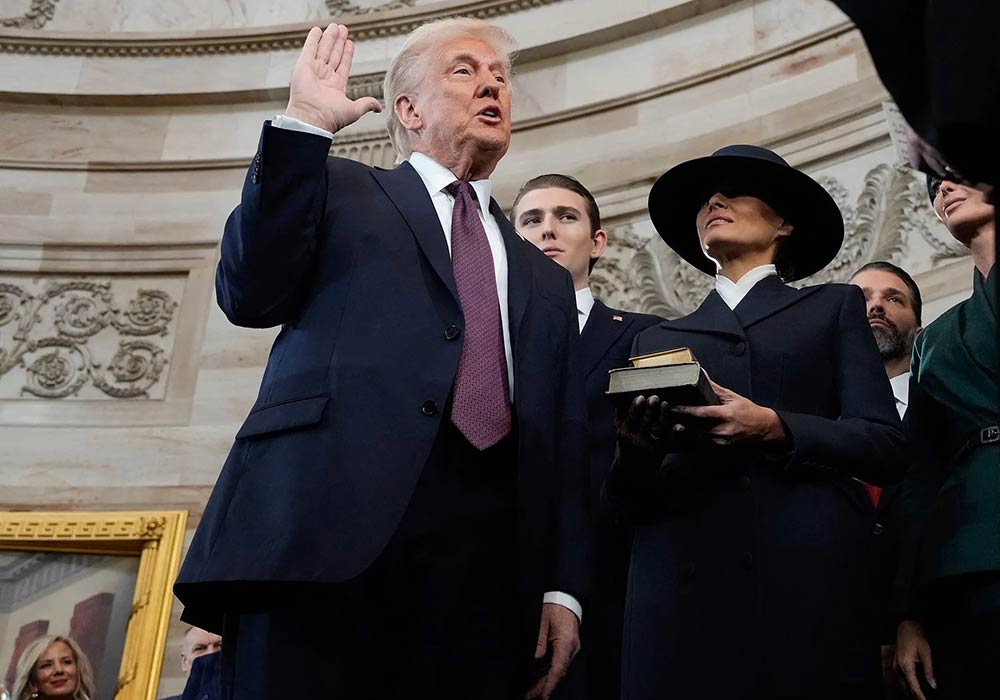
All 1600+ January 6 insurrectionists, including over 600 violent criminals who attacked, murdered Capitol police officers, pardoned by Trump
by Vijaya Chandrasoma
The inauguration of the 47th President of the United States was completed with all the traditional trappings of the nation’s most momentous political occasion. The constitutional transition of presidential power at its most peaceful, a tradition conspicuous in its absence during the near-coup of 2021.
Due to freezing temperatures and high winds, the 2025 Inauguration ceremony of President-elect Trump was held inside the United States Capitol Rotunda in Washington DC, the scene of one of the most shameful days in US history.
On January 6, 2021, thousands of rioters, incited by then twice-impeached, defeated, disgraced President Trump, stormed the Capitol in a failed attempt at a violent coup to prevent the peaceful transfer of power. On January 21, 2025, these same violent rioters were granted unconditional pardons by the same, but amazingly victorious President Trump.
Before the inauguration, President-elect Trump said that he would pardon the January 6 insurrectionist on a case-by-case basis, and pardon only those who were “peaceful protesters”.
Another lie. At least 600 of these murderous felons, convicted of assaulting Capitol police officers, murdering one and wounding hundreds in the defense of the Capitol, were also among those pardoned immediately after his inauguration by Trump, a fellow convicted felon.
In his first televised interview of his second term with Sean Hannity of Fox News last Wednesday, he described the violent attacks on the police officers at the Capitol on January 6, 2021 as “very minor incidents”, in an attempt to justify his pardon of these violent criminals.
None of these pardoned criminals have shown any remorse for their violence. On the contrary, they have expressed their intention to seek retribution against those judges and law enforcement officers who had prosecuted them for their televised acts of sedition. A few of these pardoned “patriots” made some interesting public comments which indicate they feel they would be free to commit future acts of violence against perceived enemies of their Fuhrer, with no consequences.
Capitol rioter, Jacob Chansley, aka the “QAnon Shaman”, said he’s going to “buy some motha f….ing guns” after being pardoned by President Trump.
The newly freed Proud Boys leader, Enrique Tarrio, who had been found guilty and sentenced to 22 years’ imprisonment, made no secret of his intentions of retribution against the prosecutors of the January 6 insurrection, saying, “The people who did this, they need to feel the heat. They need to be put behind bars”. It does not need much imagination to understand what these murderers mean by the phrase, “feel the heat”.
Stewart Rhodes, leader of the Oathkeepers, who had been sentenced to 18 years’ imprisonment, has been advocating political violence against the government for over a decade. He said, in a recording four days after January 6, 2021 played at his trial, that “his only regret is that they should have brought rifles” and that he would “hang f…ing Pelosi from the lamppost”. Presumably after he had hanged Mike Pence from the gallows they had constructed at the Capitol for the purpose. Rhodes is now free to commit these crimes.
Trump and his supporters are trying to defend these indefensible actions in an effort to rewrite history, that January 6 was just a peaceful protest against a rigged election. Rather than the violent insurrection resulting in murder and wounding hundreds of law enforcement officers, bravely defending the lawmakers of the nation carrying out their constitutional duties, which we all saw unfolding before our eyes. And the next four years will see pro-Trump criminals acting violently against democratic principles with impunity, with no consequences. In fact, they will be praised, like the January 6 murderers, as “patriots”.
Outgoing President Biden also issued a series of pre-emptive pardons for several persons, including members of his family, on the final day of his presidency. Clemency for Trump’s Joint Chiefs of Staff General Mark Milley, who had served the country with honor but had committed the capital crime of criticizing Trump; and for Dr. Anthony Fauci, one of the world’s leading epidemiologists who had questioned Trump’s ridiculous remedies for the Covid epidemic during his first term. They were both on the list of Trump’s targets for prosecutorial retribution, as were Liz Cheney and members of the Special Congressional Committee who had investigated and reported on Trump’s acts of sedition on January 6, 2021.
Biden, in his statement, stated that these pardons did not denote guilt.
“The issuance of these pardons should not be mistaken as an acknowledgement that any individual engaged in any wrongdoing, nor should acceptance be misconstrued as an admission of guilt for any offense. Our nation owes these public servants a debt of gratitude for their tireless commitment to our country”.
Ominously, Trump stated at the aforementioned Fox interview that Joe Biden should have pardoned himself, a clear threat that he intends to prosecute what he calls the “Biden Crime Family”.
Ironically, Taylor Budwich, Trump’s Deputy Chief of Staff said “that Biden’s pardons will go down as the greatest attack on America’s justice system in history”.
The double standard is incredible. Biden pardons people innocent of any crimes bar being disloyal to or critical of Trump, only for fear they will surely be victimized by Trump’s weaponized Department of Justice, headed by Trump loyalists, Attorney General Pam Bondi and FBI Director Kash Patel. While Trump pardons, with total impunity, 1,600+ convicted, violent insurrectionists who followed his instructions to carry out a violent coup, a crime tantamount to treason.
All the traditional, symbolic traditions for the inauguration of the President-elect, followed by every other president except Donald Trump in 2021, were honored by outgoing President Joe Biden, to signify a peaceful transfer of power.
President Biden and First Lady Jill Biden invited the Trumps and the Vances to the White House for tea and coffee on the morning of January 20, after which they drove together to the Rotunda for the Inauguration ceremony in the presidential limo.
Trump did not even attend the inauguration of President Biden in 2021, breaking a tradition which had endured for 152 years.
Trump’s Inauguration was attended by all past presidents and their spouses, except for Michele Obama. She gave no elaboration for her absence, which served to illustrate her customary good taste and dignity.
The Trump family, Elon Musk and the richest men in the world were given prominent seats at the Rotunda. Congressmen of both parties, even Trump’s former Vice-President, Mike Pence attended the ceremony, confident that this time, there would be no danger to their lives.
Trump’s inaugural speech was more like a campaign rally rant, with his usual claim, ridiculous for someone who has broken more Commandments than listed in the Bible, that he was chosen by God. He whined that he was “tested and challenged more than any president in our 250-year history”. Tested, challenged and convicted in the nation’s courts of 91 felonies, including obstruction of justice, sedition and espionage.
He proclaimed the beginning of a new “golden era”, and made some extravagant announcements, which were reminiscent of his first term promise of building that famous Southern border wall of 3,000 miles for which Mexico would pay. He barely did 50 miles in four years, and the former Mexican President, Vicente Fox jeered and said “Mexico is not going to pay for that f….ing wall!”
His intention to take over the Panama Canal, the property of the sovereign nation of Panama, will no doubt elicit the same reaction of derisive laughter from Panamanian President Mulino.
He sang his eternal tune of “Drill, Baby, Drill”, to exploit the “liquid gold under their feet”, ignorant of the billions of dollars and incalculable loss to life and property that will be caused by further natural disasters unleashed on the planet by the continued pollution caused by the abuse of fossil fuels.
But he will unilaterally rename the Gulf of Mexico as the Gulf of America, and plant the American flag on Mars, actions which he assured his devoted followers will keep grocery prices and inflation down. Perhaps our own President Dissanayake could follow Trump’s example and solve Sri Lanka’s problems by unilaterally renaming the Indian Ocean as the Sri Lankan Ocean.
Trump didn’t talk about his intentions to acquire Greenland or break away from NATO. But he has withdrawn the USA from the Paris Climate Accords and the World Health Organization. The former because he is a moron who believes that climate change is a hoax; the latter because he would not need the aid of WHO in the event of another epidemic. After all, he managed Covid 19 with great efficiency, presiding over the avoidable deaths of a mere million Americans and “managing” the US economy to near recession.
He did not keep his promise to stop the Russian-Ukraine war even before his inauguration. However, he expressed a desire to meet with his mentor, Russian President Putin. Probably to end the war by forcing the Ukrainians to cede their sovereign territory that the Russians have already annexed illegally. A deal unacceptable to both parties. Putin will continue to manipulate Trump as he has been doing since 2016.
Trump stated that the USA is a nation of two sexes, a man and a woman. His dad, God had proclaimed that He had created only two genders in the human race, when he commanded Noah, “You shall bring two of every kind into the ark, to keep them alive with you; they shall be male and female”. (Genesis 6:19)
There are 1.4 million people in the USA who do not conform to the genders they were assigned at birth. They have the bodies of one sex with the genitalia of the other. Were they created by a lesser, non-Christian God?
As part of his immigration reforms, Trump intends to end birthright citizenship, rescinding the Citizenship Clause of the 14th Amendment: “All persons born or naturalized in the United States and subject to the jurisdiction thereof, are citizens of the United States and of the State wherein they reside”. Presidents do not have the power to overturn Amendments to the constitution by Executive Order.
The Executive Order he has signed authorizing the use of the military to implement the mass deportation of illegal immigrants is also against the constitution and will be contested in the courts; as well as the actions his minions have started, replacing with Trump loyalists all known Democrats and DEI (Diversity, Equity and Inclusion) federal employees, who in Republican eyes are black, brown and leftist hires.
There is one flaw about Trump’s great Project 2025 plan which was highlighted with a direct appeal to him at a prayer service at St. John’s Church, at Lafayette Square, Washington DC, held to honor his inauguration.
The Episcopal bishop of Washington, the Right Rev. Mariann Budde, during her 15-minute sermon, cited Trump’s belief about being saved by God from assassination:
“You have felt the hand of a loving God. In the name of our God, I ask you to have mercy upon people in the country who are scared now. There are gay, lesbian and transgender children in Democratic, Republican and Independent families across the country who fear for their lives”.
Budde also made a plea for immigrants, a group targeted for deportation by the Trump administration. “They pick our crops, look after our children and parents, work the night shifts in our hospitals, keep our schools clean. They may not have the proper documentation, but the vast majority are not criminals but rather are good neighbors”.
Trump, enraged at God’s words, of which his only knowledge is through selling Bibles, demanded an apology from Budde and clergy of the Episcopal Church for politicizing God’s Word, calling them “Radical left hard line Trump haters”.
As most true Christians are. No apology is required for the truth.
Features
Hidden dangers in pencils: A call for vigilance to protect children’s health

Colorful fancy pencils, a staple in every child’s school bag, may be hiding a silent threat. Recent revelations have raised concerns about the safety of low-quality pencils and stationery, which may contain harmful chemicals and heavy metals, posing serious health risks to children. Experts and activists are now urging parents, educators, and authorities to take immediate action to safeguard children from these hidden dangers.
Dr. Mahinda Wickramarachchi, Head of the Quality Control Unit at Lady Ridgeway Hospital for Children (LRH), highlighted the risks associated with substandard pencils. “Imported pencils and coloring pencils, especially those without any without any proper information about the brand and manufacturer, often fail to meet international safety standards. These products may contain heavy metals like lead, cadmium, and arsenic, which can enter a child’s body through chewing or prolonged use,” he warned.
The European Committee of Standardization (CEN) has introduced the EN 71 standard to ensure the safety of children’s products, including pencils and stationery. This standard mandates rigorous testing to detect harmful substances. For instance, pencils are immersed in a stomach acid-like solution for two hours to check for the release of toxic chemicals. However, Dr. Wickramarachchi noted that most of the pencils in the Sri Lankan market do not comply with these standards.
A school teacher, who wished to remain anonymous due to administrative regulations, shared her concerns. “Children often chew on pencils or put them in their mouths. If these pencils contain harmful substances, it could lead to serious health issues like allergies, infections, or even long-term illnesses such as kidney problems and cognitive impairments,” she said.
Ranjith Vithanage, Chairman of the National Movement for Consumer Rights Protection, echoed these concerns. “The market is flooded with low-quality imported pencils and stationery, particularly from countries like China. These products are sold at high profits but pose significant risks to children’s health,” he said. Vithanage criticized the lack of regulatory oversight, stating that the authorities have failed to introduce adequate standards for school equipment.
Joseph Stalin, Secretary of the Ceylon Teachers’ Union (CTU), emphasized the need for immediate action. “The authorities has a responsibility to ensure the safety of these products. We plan to investigate this issue and take legal action against those responsible for importing and selling substandard school items,” he said.
Despite these warnings, the market continues to be dominated by cheap, low-quality products. Vithanage urged parents to be vigilant. “When schools issue book lists, parents must pay attention to the quality of the items they purchase. Saving a few rupees now could cost your child’s health in the long run,” he said.
The call for action is clear. Parents, teachers, and authorities must work together to ensure that children are not exposed to harmful substances. By prioritizing safety standards and demanding better regulation, we can protect our children from the hidden dangers lurking in their school supplies.
As the anonymous teacher aptly put it, “Every pencil in a child’s hand should be a tool for learning, not a threat to their health.” Let’s ensure that our children’s creativity and education are nurtured in a safe and healthy environment.
-

 Business7 days ago
Business7 days agoCustomer service to new heights with Digitalized Contact Centre for Union Bank
-
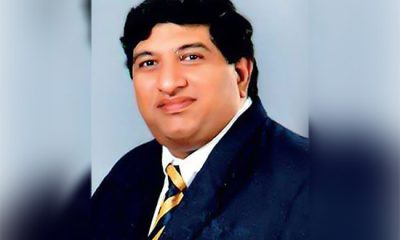
 Business5 days ago
Business5 days agoMember, National Council for Road Safety
-
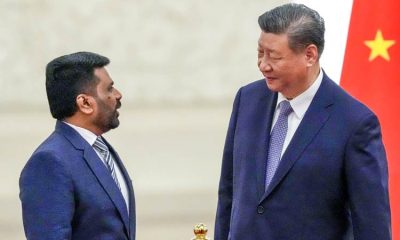
 Features4 days ago
Features4 days agoHambantota oil refinery – From fairy tale to reality?
-

 Editorial6 days ago
Editorial6 days agoCost-cutting and hypocrisy
-

 Editorial7 days ago
Editorial7 days agoComrades see red
-

 Sports4 days ago
Sports4 days agoMr. Neil Perera passes away at 95
-

 Latest News4 days ago
Latest News4 days ago2024 Grade 5 Scholarship Exam results released
-
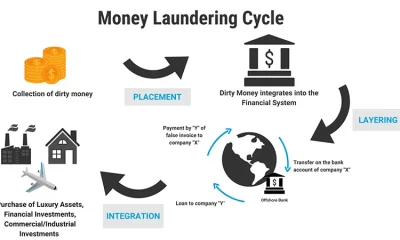
 Features6 days ago
Features6 days agoGlobal challenges, mechanisms, and strategic solutions










